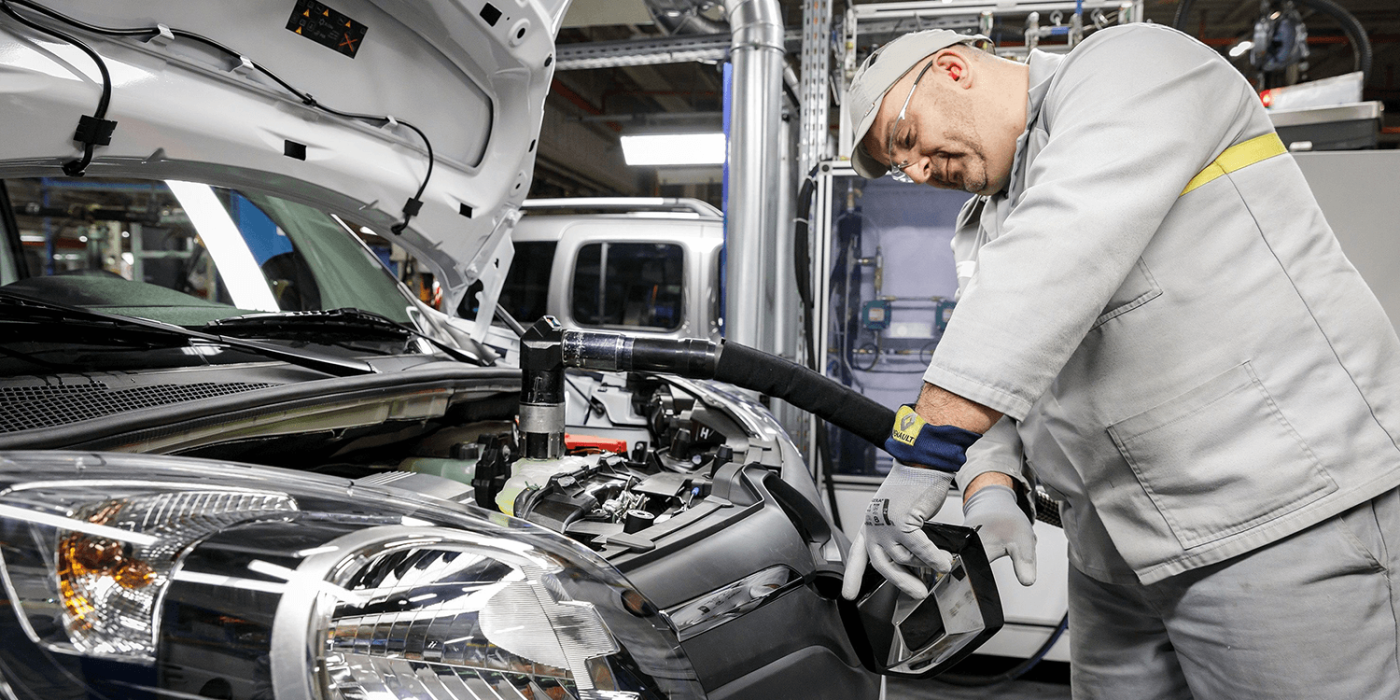Renault to restructure for efficiency across the alliance
After alliance partner Nissan, Renault has also presented its restructuring program. The savings plan provides for the elimination of two billion euros in fixed costs. The strategy includes cuts in personnel.
The plan sounds simple at first: Renault wants to increase efficiency by simplifying processes, reducing the variety of components and adjusting capacities, as they write in the communication. The “necessary personnel adjustments”, as the French company described the job cuts, should form the “basis for the return to profitable and sustainable growth”.
Specifically, 4,600 jobs are to be cut in France and “more than 10,000 jobs” in the rest of the world. But Renault wants to avoid layoffs for operational reasons. “They are to be achieved through retraining, internal mobility and voluntary redundancies,” the communication says.
The savings also mean that Renault intends to focus more on specific areas in the future. According to its statement, the carmaker has defined “electric vehicles, light commercial vehicles, recycling management and innovations with high added value” as strategic business areas. Concerning electromobility, Renault is launching a project on the Douai and Maubeuge plants to study the creation of a centre of excellence for electric vehicles and light commercial vehicles in northern France. The “large regional centres of excellence in France should be at the heart of the revitalisation”, says Renault.
Jean-Dominique Senard, Chairman of the Board of Directors, made it clear that there can be no “business as usual” with many burners, high fixed costs and rigid structures: “The changes planned are crucial to ensure the sustainability of the company and its development in the long term.”
In line with the restructuring of the alliance with Nissan and Mitsubishi presented on Wednesday, Renault will take the lead in model development in Europe (the two partners will follow Renault here), the development of electric cars for the A and B segments and the development of the vehicles’ Android-based connectivity systems. According to Renault, the activities at the Flins plant (including Zoe) and the Technology and Development Centre in Guyancourt will be reorganised. However, the notification does not contain any details on this.
“Together and with the support of our alliance partners, we will achieve our goals and can establish Groupe Renault as a major player in the automotive industry in the years to come,” said Senard. “We are fully aware of our responsibilities and the planned transformation can only be achieved with respect for all the stakeholders of our Group and through exemplary social dialogue”.
Allianz’s Leader-Follower Principle is one of the measures designed to reduce engineering costs by 800 million euros. By reducing the variety of components, the entire vehicle development process is to be streamlined. Production in the plants is to be upgraded with industry 4.0 technologies and digitalisation is to be accelerated.
Worldwide, Renault expects its production capacity to fall to 3.3 million vehicles by 2024 – from the current level of around four million cars. Specifically, the carmaker will suspend projects already planned for new production capacities in Morocco and Romania and is investigating adapting capacities in Russia. Renault is also looking into “possibilities for rationalising transmission production”. The Fonderie de Bretagne plant is also to be “strategically” examined, and the conversion of the Dieppe plant at the end of production of the Alpine A110 is also to be “openly considered”. Renault is thus publicly scrutinising these factories, but without announcing a concrete closure.
Renault also mentions once again the withdrawal from the development of combustion vehicles in China and the transfer of the shares of the joint venture to Dongfeng.
However, Renault does not mention what Nissan announced in its austerity plan on Thursday: The plant in Sunderland, UK, should also build Renault models in the future, according to the Japanese. In Sunderland, Nissan is building the Leaf, among other things, but also the SUV Qashqai, which has a Renault sister model, the Kadjar. Questioning (production) jobs in France and at the same time shifting capacities to England – this is unlikely to go down well with employee representatives and the French government. Renault estimates the cost of implementing the plan at 1.2 billion euros.





0 Comments